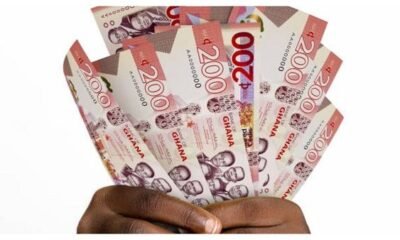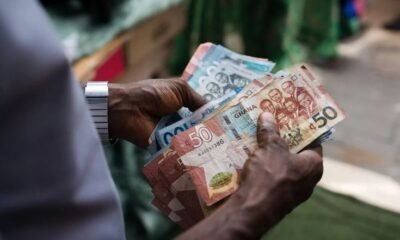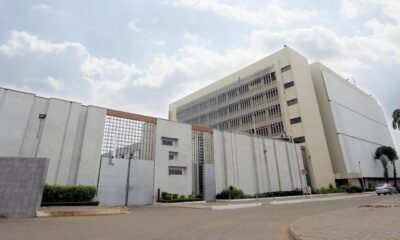Published
6 months agoon
By
Adubianews
Borrowers in Ghana who deliberately refuse to repay their loans could soon face tougher penalties, including a five-year ban from accessing credit at any regulated financial institution.
The Bank of Ghana (BoG) has introduced new directives aimed at reducing rising non-performing loans (NPLs) and safeguarding the stability of the banking sector.
The measures require commercial banks and other regulated lenders to publish the names of wilful defaulters twice annually, on June 30 and December 31, in at least two national newspapers and on their official websites.
Defining Wilful Loan Default
According to the BoG, a borrower is classified as a wilful defaulter if they fail to repay despite having the means, divert borrowed funds for purposes other than agreed, or use falsified collateral and fraudulent documents to secure a loan.
Restrictions on Credit Access
The directives bar all regulated institutions from granting new loans to such borrowers once a loan write-off is approved. The prohibition period will be calculated as twice the time between the write-off and the full repayment of the debt.
Borrowers identified as repeat defaulters on two or more occasions within ten years will face an automatic five-year ban, or longer if the calculated period exceeds that timeline.
The rules also extend to company directors found guilty of misrepresentation, fund diversion, falsified accounts, or fraudulent transactions.
Path Back to Credit
A wilful defaulter may only regain credit access after fully settling all outstanding written-off loans, including accrued fees, and demonstrating to lenders a willingness and ability to honour future repayments.
Prudential Limits on NPLs
To further strengthen the sector, BoG has directed all banks to maintain NPL ratios at or below 10% by the end of 2026, while microfinance institutions must stay within their 5% cap.
Starting January 1, 2027, institutions that exceed these limits will be prohibited from paying dividends, issuing bonuses, or expanding their loan portfolios.
The move, according to the central bank, is part of broader efforts to enhance financial discipline and protect the solvency of Ghana’s banking system.


Bank of Ghana Urges Ghanaians to Respect the Cedi as a Symbol of National Dignity


Cedi Turns 60: Bank of Ghana Marks Milestone with National Celebration


BoG Assures Businesses of Dollar Availability, Cuts Policy Rate


BoG Cracks Down on Huge Dollar Withdrawals to Protect Ghana’s Economy


BoG Postpones Cedi@60 Launch Following Fatal Helicopter Crash


BoG Quells Fears of Dollar Shortage, Reaffirms Commitment to Forex Stability


BoG Governor Attributes Cedi Stability to Policy Reforms and Investor Confidence


Ghana’s $1.4 Billion FX Sale in Q1 2025 Raises IMF Concerns


Bank of Ghana Reaffirms Support for PAPSS to Boost Cross-Border Trade and Digital Payments

























